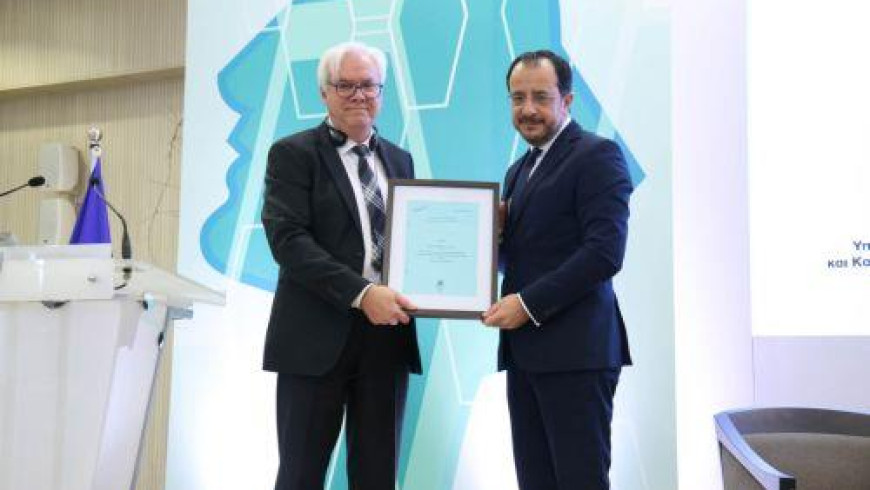
Cyprus has reached near full employment conditions, but it has needs in personnel in some fields and lags behind in terms of staff re-skilling to meet labour market demands, officials said during the presentation of the European Commission’s 2024 Employment and Social Developments in Europe at the EU House in Nicosia.
According to the data presented by Barbara Kauffman, Director of the Directorate-General for Employment, Social Affairs and Inclusion, that the EU had a record employment rate last year, of 75.3% while Cyprus was doing better, with almost 79%. She referred to the EU target for 78% employment rate by 2030 noting that they are seeing that member states were making good progress but that this is not the case for all the other targets.
Last year, she added, it was the first time that there was more than 70% of women in employment in the EU on average noting that “I know here it's often more, so congratulations for that”.
“At the same time, of course, we're also experiencing in the EU labour shortages and skill shortages, something that I know you experience here as well”, she said.
According to Kauffman, over the last 10 years there has been an upward trend, noting that vacancy rates have roughly doubled recently with the EU average being at 2.5% in vacancy rates while in Cyprus it is at 2.8% right now, while the numbers can be much higher in specific sectors, like construction which in Cyprus is 16%. She noted that perhaps, it was “not a coincidence” that this is an area where the country had some issues recently, “exactly because I think that also adds to the pressure when you have this labour shortage”.
Referring to demographic change, she said that by 2050, the EU will lose 36 million people in the working age.
She also referred to the EU target to reduce the number of people at risk of poverty and social exclusion by 50 million by 2030, noting that it is now at 1.6 million and that the most still has to be done.
Kauffman also said they were “quite impressed” that in Cyprus the number of people at the risk of poverty, was much lower. “I think they are 16.7% both for persons in general, but also for children”, she added, noting that the measures that are being taken by the country show results.
She also said, however, that Cyprus is behind its target for adult learning to reach 61% by 2030, noting that it is currently at 28%. The EU target is 60% by 2030, Kauffman said, adding that there are “huge differences in terms of targets” among EU member states, and saying that “things are not doing so well”.
Kauffman also referred to the “dismal performance of the EU in Pisa results”.
In his opening remarks, the permanent secretary of the Labour Ministry, Costas Hadjipanayiotou, said that Cyprus has, over past decades made significant progress in relevant fields and referred to some of the actions of the Ministry.
Noting that youth unemployment dropped considerably in recent years, he said that Cyprus, with EU support, has implemented some “successful programmes” providing young people with the skills they need for emerging industries. He said though that “we know more remains to be done to ensure sustainable opportunities”.
Regarding the women's participation in the workforce, he said that the country has introduced measures such as subsidised child care and targeted wage subsidies to empower women to join and remain in the workforce. He added that Cyprus’ policy framework for the country's demographic recovery aims to address negative demographic trends through the reconciliation of family and professional life, among other measures.
As regards skills development, Hadjipanayiotou, said that, through partnerships with the private sector and the EU vocational training schemes, “we prioritise strengthening employees with the skills required in sectors like renewable energy, hospitality and tourism, and ICT (information communication technology)”. He also reaffirmed Cyprus’ commitment for a socially and economically cohesive Europe, noting that, for Cyprus, this means building a labour market “that is not only resilient, but inclusive, dynamic, and fair for all”.
Permanent secretary of the Social Welfare Deputy Ministry, Yiannis Nicolaides, in his opening remarks, referred to the role of social investment, noting that it was crucial while the policies, measures and actions supported by the EU financial instruments create direct short and medium term, sustainable and effective economic results in all sectors.
As regards the report, he said that Cyprus is called upon “despite the challenges”, to make full use of the findings, turn challenges into opportunities, and contribute to the common EU effort. He also referred to the need for everyone’s contribution to achieve “a fair and just green and digital transition”, which involves all sectors, he added, social welfare, labour, transport, education, health, environment, housing, innovation but also the countries’ ministries of finance.
Nicolaides also presented the actions of the Deputy Ministry for children, families, and people with disabilities.
Yiannis Mourouzides Director General of Cyprus’ Human Resource Development Authority (HRDA), said in his presentation that Cyprus has reached almost full employment conditions but that it has shortage of skilled labour force such as in tourism, health, agriculture, construction, manufacturing, and information technology.
He referred to the need for education to provide the skills to match market needs, noting that there is “significant shortage” in STEM occupations.
According to Mourouzides, Cyprus has one of the higher percentages in university graduates but does not have the necessary number of people to fill STEM positions, while also noting that the level of digital skills is low.
Noting that significant changes are taking place in labour markets and occupations due to regional wars and conflicts, the green and digital transition, globalisation, demographic changes, and that this means that different knowledge and skills will be required.
He also referred to the importance of lifelong training activities, noting that 50% of all employees will need reskilling by 2025, as adoption of technology increases. By 2027, he said, it is expected that 42% of business tasks will be automated, and that people reskilling is important to be able to remain in the job market.
He also noted that enterprises need persons having transversal skills such as analytical thinking, creative thinking, talent management, and that individuals must adjust by re-skilling and up-skilling adding that lifelong career guidance to all persons was necessary.














 3287.99
3287.99 1275.09
1275.09
